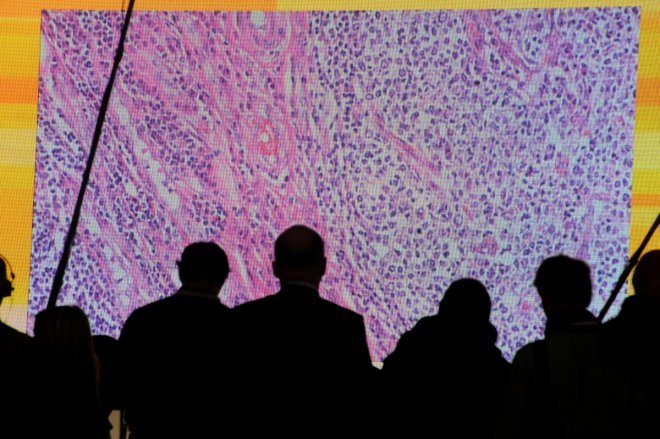
Scientists have identified a way to restrict the ability of cancer cells to consume glucose for energy, thus paving the way for developing a potential new therapy for the deadly disease.
The study, published in the journal Cell Reports, showed that the gene CDK8 plays a critical role in allowing cancer cells to use glucose as an energy source.
Over-expression of the gene CDK8 is linked to the development of many cancers including colorectal cancer, melanoma, and breast cancer.
Although a number of drugs aimed at blocking CDK8 activity are currently being developed, it is not yet clear how effective they are in treating various cancers.
When the researchers used a sophisticated chemical genetics approach to specifically switch off CDK8 activity in colorectal cancer cells, they saw that the cells failed to activate glycolysis genes and took up much less glucose.
Further experiments showed that blocking CDK8 activity leads to a lower rate of glucose use.
"Because of this role of CDK8 in glycolysis (the process of consuming glucose), I reasoned that the cells with impaired CDK8 activity should be more susceptible to drugs that block glycolysis," said Matthew Galbraith from University of Colorado Cancer Center in the US.
Sure enough, treating cancer cells with drugs that block both CDK8 and glycolysis slowed their growth more effectively than either approach alone.
"These are very exciting discoveries," Joaquin Espinosa from the University of Colorado added.
"Combining drugs that block CDK8 activity with those that block glycolysis may enable specific targeting of cancer cells without harmful effects on normal cells," Espinosa said.









